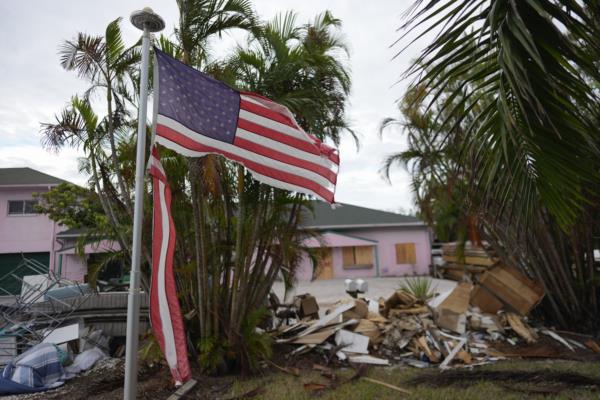
Residents in the Tampa Bay region are on high alert as Hurricane Milton threatens to make a direct hit, prompting mandatory evacuations and frantic preparations. The storm, which has regained Category 5 status with winds of 165 mph, is expected to bring lethal storm surges, ferocious winds, and possible tornadoes to the area.
Authorities are urging residents to heed evacuation orders, warning that first responders may not be able to assist those who choose to stay behind. Governor Ron DeSantis has mobilized resources to clear debris left by previous storms and ensure fuel availability for evacuees.
The storm's trajectory has shifted slightly, raising concerns about its potential landfall location. While the Tampa Bay area remains a primary target, surrounding regions are also bracing for impact.
Climate change is exacerbating conditions that allow hurricanes like Milton to rapidly intensify, posing a significant threat to coastal communities. The back-to-back hurricanes, Milton and Helene, underscore the urgency of addressing climate-related challenges.






















Residents are facing challenges such as fuel shortages, missed flights, and heavy traffic as they prepare for the impending storm. President Joe Biden has approved an emergency declaration for Florida and postponed international travel to monitor the situation closely.
Emergency response teams are on high alert, with FEMA deploying staff and stockpiling essential supplies. Stragglers from previous storms serve as a reminder of the importance of heeding evacuation orders and taking proactive measures to ensure safety.
As Florida braces for potentially historic impacts from Hurricane Milton, residents are urged to prioritize safety, follow official guidance, and stay informed as the situation continues to evolve.







